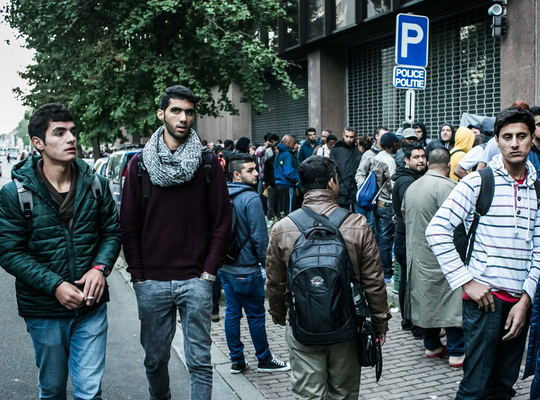You are here
N-VA requests tightening of reception rights

The asylum crisis cannot be tackled by opening ever more places for asylum seekers. The necessary government resources to do this are lacking and there is no public support for it either. The inflow into the reception network must urgently be reduced, and this is only possible if the law on reception rights is thoroughly reformed. For this reason, the N-VA is submitting a bill to tighten up the reception rights in this regard to comply with the European minimum.
With a bill, the N-VA wants to tighten up the reception of asylum seekers to the European minimum. As a result, no more reception rights will apply for those who have submitted multiple asylum applications, for asylum seekers with EU nationality or for people who have submitted an asylum application in a different EU country.
Multiple asylum applications
Although European directives only impose the granting of reception rights for the duration of the first asylum procedure, there are many asylum seekers in Belgium in the reception network whose application has been refused earlier. Those asylum seekers can subsequently submit a new asylum application, often only so they can get reception rights. “We want to get rid of that once and for all, which will also reduce the number of multiple asylum applications,” the N-VA says.
European asylum seekers
People with an EU nationality, mostly from Eastern Europe, submit an asylum application all too often. Those applications have no chance of success right from the very start. “Those people are perfectly aware of that, but they submit an asylum application anyway in order to benefit from the reception system and the medical care linked to it. In times of a shortage of reception resources, we must have the courage to make difficult choices. The European rules allow us not to grant any more reception rights to this group. We must use this possibility, which will lead to a huge reduction in asylum applications from this group,” says the N-VA. “The possibility for Europeans to submit an application themselves must of course remain open. Let it be clear: Catalans remain welcome.”
Persons who sought asylum in a different EU country
Finally, a significant proportion of the asylum applications do not concern newcomers, but people who have been present in the Schengen zone for some time. These applications can involve people whose asylum application was refused in a different country or who left a country while their asylum procedure was still pending. That can be checked via the European electronic fingerprint database for asylum seekers. “With our bill, we want to take away the right to reception for these ‘asylum shoppers’ completely. Not only would that ease the pressure on the reception network, it would also create an enormous deterrent effect that by itself would cause asylum application numbers to fall,” the N-VA concludes.

